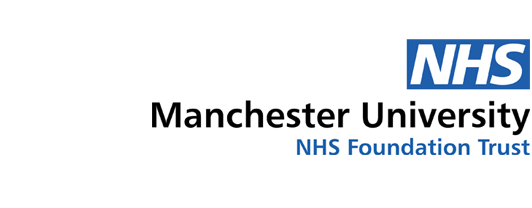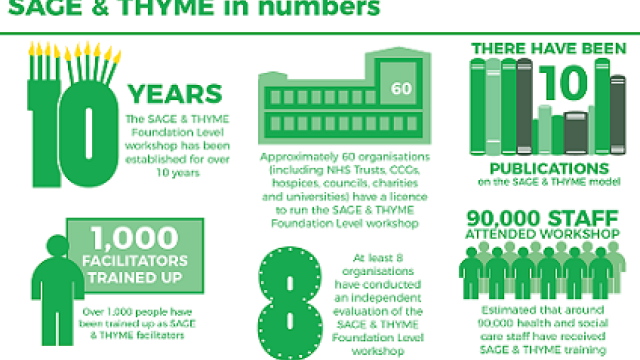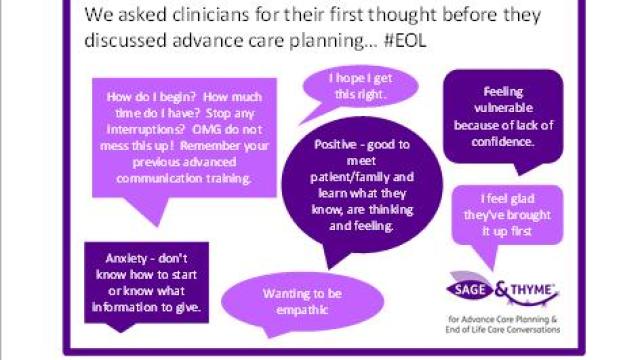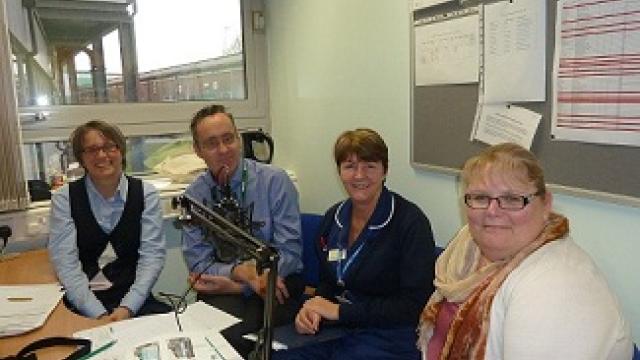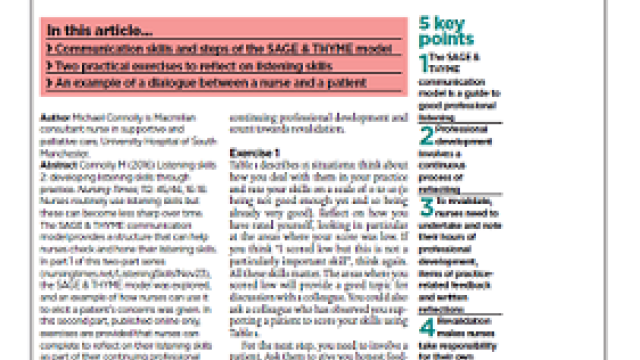31 January 2017
Do you know how to generate senior support for your SAGE & THYME training programme?
The objectives of this webinar are to:
-
Provide a forum/opportunity for SAGE & THYME facilitators to consider how to generate senior support
-
Showcase successful influencers
-
Demystify influencing activity
-
Showcase influencing strategies and plans
-
Present a ‘Do and Don’t’ list
The special guests on this webinar will be: Sue Heatley, Modern Matron for Community and CKD at Central Manchester University Hospitals NHS Foundation Trust, and Vicki McLoughlin, Palliative and End of Life Care Practice Development Lead at Salford Royal NHS Foundation Trust. Both Sue and Vicki have been running the SAGE & THYME foundation level workshop in their Trusts for over 6 years.
The interviewer will be Mike Connolly, Head Trainer of SAGE & THYME and Macmillan Nurse Consultant in Supportive and Palliative Care at University Hospital of South Manchester NHS Foundation Trust; and the webinar will be hosted by Dr Joanne Thomas, Senior Technology Manager at TRUSTECH and the business lead for SAGE & THYME.

